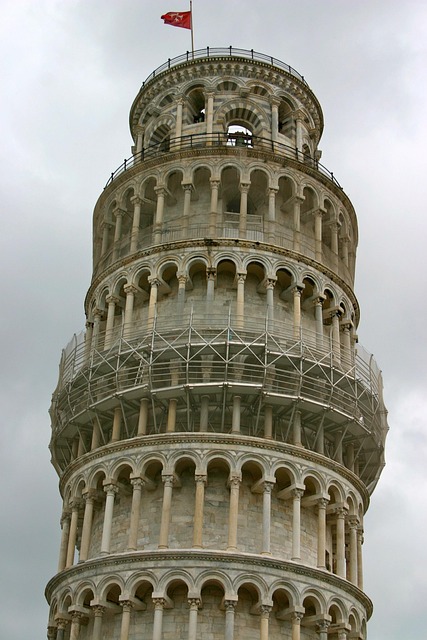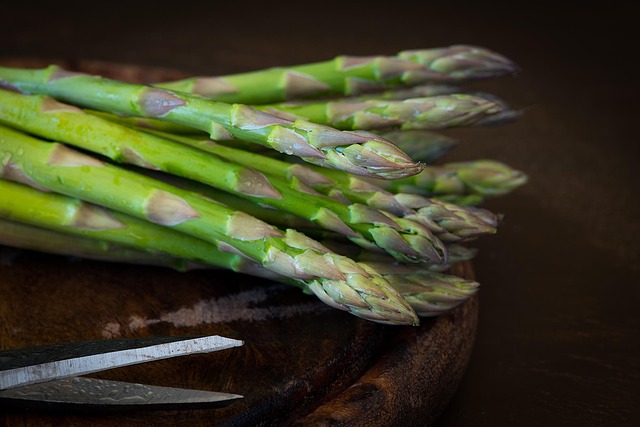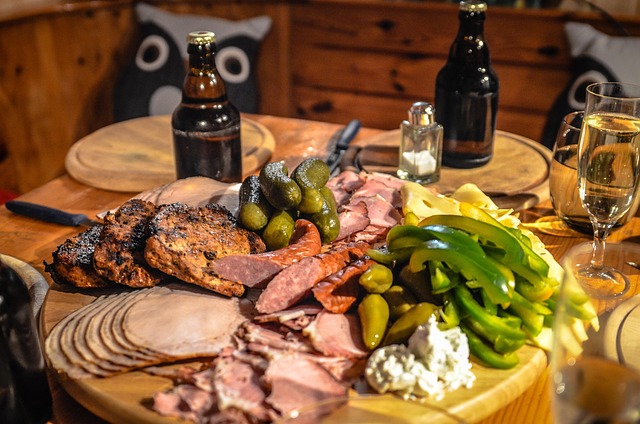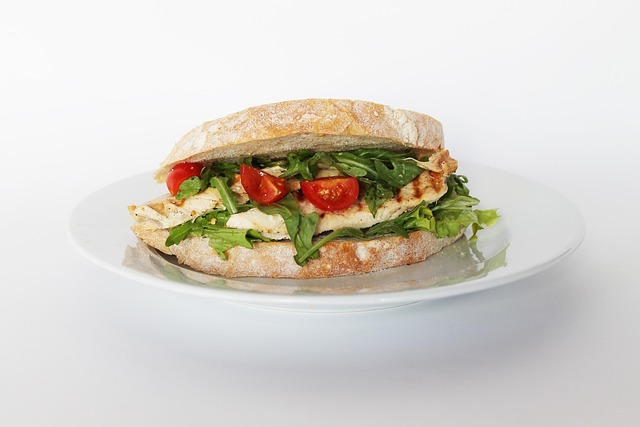Category: Seasonal Food Festivals and Events Eugene Oregon
Seasonal Food Festivals and Events Eugene Oregon: A Culinary Celebration
Introduction
Welcome to a culinary journey through the vibrant city of Eugene, Oregon, where seasonal food festivals and events have become a defining aspect of its cultural landscape. This comprehensive article aims to explore the diverse world of these celebrations, shedding light on their historical roots, global influence, economic impact, and technological innovations that shape this unique phenomenon. From mouth-watering culinary delights to community engagement, Eugene’s seasonal food festivals leave an indelible mark on locals and visitors alike. Get ready to delve into a feast for both the senses and the mind as we uncover the magic of these events.
Understanding Seasonal Food Festivals and Events in Eugene Oregon
Definition and Core Components
Seasonal Food Festivals and Events in Eugene, Oregon, refer to a series of organized celebrations that showcase the region’s rich culinary heritage and promote seasonal produce. These festivals typically feature local farmers, chefs, food artisans, and culinary enthusiasts who come together to celebrate the bounty of Oregon’s diverse seasons. The core components include:
- Farm-to-Table Dining: A focus on serving dishes prepared with locally sourced, seasonal ingredients, highlighting the connection between farmers and restaurants.
- Agricultural Exhibitions: Displays and markets showcasing the region’s agricultural diversity, with vendors selling fresh produce, artisanal foods, and handmade crafts.
- Cooking Demonstrations and Workshops: Interactive sessions led by renowned chefs and culinary experts, offering insights into cooking techniques, food preparation, and seasonal menu planning.
- Music and Entertainment: Live performances, local bands, and cultural presentations add a vibrant atmosphere to the festivals, creating a memorable experience for attendees.
- Community Engagement: These events foster a sense of community by bringing people together to enjoy good food, share stories, and celebrate the region’s unique culinary identity.
Historical Context and Significance
The tradition of seasonal food festivals in Eugene has deep roots in the city’s history as an agricultural hub. Since its establishment, Eugene has been known for its thriving farming communities and diverse produce. In the early 1900s, farmers’ markets and community gatherings became a way to celebrate the region’s abundance. Over time, these events evolved into organized festivals, attracting chefs, food writers, and culinary enthusiasts from around the world. Today, Eugene’s seasonal food festivals not only preserve the city’s agricultural heritage but also contribute significantly to its economy and cultural vibrancy.
Global Impact and Trends
International Influence
Eugene’s seasonal food festivals have gained international recognition, attracting visitors from diverse culinary destinations. The city’s unique blend of farm-to-table dining, natural beauty, and a thriving culinary scene has inspired similar events worldwide. Many global cities have adopted the concept, hosting their own versions, often tailored to local flavors and agricultural seasons. This trend has led to a rich exchange of culinary ideas and practices, enriching the global food festival landscape.
Key Trends Shaping the Trajectory
- Sustainability and Local Sourcing: A growing emphasis on sustainability is driving the demand for locally sourced ingredients, with festivals promoting farm-to-table dining and reducing food miles.
- Cultural Diversity: Eugene’s diverse population contributes to a vibrant culinary tapestry, with festivals showcasing various ethnic cuisines alongside local specialties.
- Experiential Dining: There is a shift towards creating immersive culinary experiences that engage the senses, combining food with music, art, and cultural performances.
- Educational Focus: Many festivals now offer workshops and demonstrations, educating attendees about sustainable farming practices, culinary techniques, and the importance of seasonal eating.
- Technology Integration: Utilizing technology for event promotion, ticket sales, and interactive experiences is becoming increasingly common, enhancing accessibility and engagement.
Economic Considerations
Market Dynamics
Seasonal food festivals play a pivotal role in Eugene’s economy by attracting tourists and fostering local business growth. According to a recent study, these events contribute an estimated $15 million to the city’s GDP annually. The festivals stimulate demand for accommodation, restaurants, and retail services, creating a multiplier effect on the local market.
Investment Patterns
Local businesses and investors have recognized the potential of seasonal food festivals as a significant draw for tourists and food enthusiasts. This has led to increased investment in hospitality infrastructure, with new hotels, restaurants, and culinary-focused attractions springing up around the event venues. The city’s economic development strategies actively promote these festivals as key components of Eugene’s tourism and cultural offerings.
Economic System Integration
The festivals become integral to Eugene’s economic system by:
- Promoting Tourism: They attract visitors from neighboring states and countries, increasing tourist spending and hotel occupancy rates.
- Supporting Local Farmers: By providing a platform for direct sales and marketing, these events benefit local farmers and producers, fostering a sustainable agricultural economy.
- Driving Retail Sales: Attendees often purchase local products, handicrafts, and food items, boosting small businesses and artisan vendors.
- Creating Employment Opportunities: The festivals generate jobs in event planning, hospitality, catering, and various retail sectors.
Technological Advancements
Digital Marketing and Promotion
The digital age has revolutionized the way seasonal food festivals are promoted and marketed. Social media platforms, email campaigns, and dedicated festival websites have become essential tools to reach a global audience. Interactive features like event ticketing apps, personalized recommendations, and virtual tours enhance the pre-event experience.
Technology at Festivals
- Interactive Kiosks: These provide attendees with festival maps, food options, and real-time updates on cooking demonstrations.
- Mobile Payment Systems: Attendees can conveniently purchase food, beverages, and merchandise using their smartphones, streamlining transactions.
- Augmented Reality (AR) Experiences: Some festivals offer AR features, allowing participants to explore virtual culinary displays or interact with historical farming scenes.
- Live Streaming: Cooking demonstrations and performances are streamed live, reaching a global audience and providing a digital experience for those unable to attend in person.
Future Potential
As technology continues to evolve, there is immense potential to enhance festival experiences:
- Virtual Reality (VR) Tours: Pre-event VR tours could offer attendees a sneak peek into the festival atmosphere, attracting more visitors.
- Personalized Festival Maps: AI-powered maps can guide users based on their preferences, providing a tailored experience.
- Smart Event Management Systems: These systems optimize logistics, waste management, and resource allocation, ensuring efficient festival operations.
- Blockchain for Ticket Sales: Secure and transparent ticket sales through blockchain technology could revolutionize event ticketing.
Policy and Regulation
Governance and Legal Frameworks
The success of seasonal food festivals in Eugene is underpinned by a robust legal framework and supportive policies. The city’s government, in collaboration with local health departments and agricultural agencies, sets regulations to ensure food safety, vendor licensing, and sustainable practices. These policies cover areas such as:
- Food Handling and Hygiene: Strict guidelines for food preparation, storage, and service to maintain high hygiene standards.
- Vendor Licensing and Permits: All vendors must obtain licenses and permits, ensuring they meet health and safety regulations.
- Agricultural Practices: Regulations promote sustainable farming practices and support local producers by setting standards for organic certifications and fair trade practices.
- Event Planning and Zoning: City planning policies ensure festivals are held in appropriate venues, considering noise levels, traffic management, and impact on neighboring areas.
Influence on Development
The well-regulated festivals have several impacts:
- Safety and Quality Assurance: Strict regulations ensure a safe and enjoyable experience for attendees, fostering trust in the events.
- Fair Competition: Clear policies create a level playing field for vendors, promoting fair trade practices and high-quality offerings.
- Environmental Sustainability: Regulations encourage eco-friendly practices, waste reduction, and responsible resource management.
- Community Engagement: Policies that support local businesses and producers foster a sense of community and strengthen local economic ties.
Challenges and Criticisms
Overcoming Barriers
Despite their immense popularity, seasonal food festivals in Eugene face several challenges:
- Logistical Complexity: Planning and coordinating large-scale events require meticulous organization, including vendor management, waste disposal, and crowd control.
- Weather Dependence: Outdoor festivals are vulnerable to unpredictable weather conditions, requiring contingency plans and backup venues.
- Environmental Impact: Managing the environmental footprint of festivals is a constant challenge, particularly in terms of waste generation and energy consumption.
- Accessibility: Ensuring equal access for all attendees, including those with disabilities, requires thoughtful design and accommodation.
Proposed Solutions
To address these issues:
- Collaborative Planning: Engaging local authorities, event organizers, and vendors in early planning stages can lead to more efficient logistics and resource management.
- Weather-Resilient Infrastructure: Utilizing portable structures, heated tents, and backup power sources can mitigate weather-related disruptions.
- Waste Management Strategies: Implementing recycling programs, compostable materials, and waste reduction initiatives can minimize environmental impact.
- Inclusionary Practices: Providing accessible entry points, designated parking spaces, and sign language interpreters enhances festival inclusivity.
Case Studies: Successful Applications
Case Study 1: Eugene’s Farm-to-Table Festival
Overview: This annual event celebrates the region’s farm-to-table cuisine, showcasing local farmers, chefs, and artisanal food producers.
Key Success Factors:
- Community Collaboration: The festival is a collaborative effort between local farms, restaurants, and community organizations, ensuring diverse culinary offerings.
- Educational Focus: Cooking demonstrations and workshops target both beginners and advanced cooks, fostering a culture of culinary learning.
- Sustainable Practices: Emphasizing local and seasonal ingredients, the event promotes sustainable farming practices and reduces food miles.
- Interactive Experiences: Live music, children’s activities, and farm tours create a vibrant atmosphere, appealing to families and food enthusiasts alike.
Case Study 2: International Culinary Exchange Festival
Overview: A unique festival bringing together chefs and culinary experts from around the world to share their traditions with Eugene’s local community.
Lessons Learned:
- Cultural Diversity: The festival showcases a diverse range of cuisines, enriching the culinary landscape and fostering cultural appreciation.
- Global Networking: It provides an opportunity for international chefs to connect with local producers and vice versa, leading to potential collaborations and partnerships.
- Community Engagement: Encouraging audience participation in cooking demonstrations and cultural exchanges strengthens community ties and promotes cultural understanding.
- Tourism Boost: The festival attracts food enthusiasts from beyond the region, increasing tourist spending and promoting Eugene as a culinary destination.
Future Prospects
Emerging Trends
- Sustainable Food Innovation: Further exploration of innovative sustainable practices, such as vertical farming, hydroponics, and alternative protein sources.
- Techno-Culinary Fusion: Blending technology with cuisine, including AI-curated meal plans, 3D food printing, and virtual reality dining experiences.
- Wellness and Health-Focused Festivals: Growing interest in wellness tourism will lead to events centered on health-conscious cooking, mindfulness practices, and holistic healing.
- Community-Driven Initiatives: Increased participation from local communities in festival planning and organization, reflecting diverse cultural identities.
Strategic Considerations
- Digital Integration: Continuously exploring new digital technologies to enhance attendee experiences, improve event management, and expand global reach.
- Sustainability as a Core Pillar: Incorporating sustainability practices throughout festival operations, from waste management to transportation initiatives.
- Diversifying Culinary Offerings: Encouraging participation from diverse culinary traditions to reflect Eugene’s multicultural fabric.
- Year-Round Events: Developing smaller, more frequent events to maintain momentum and engage attendees regularly.
Conclusion: A Culinary Journey Continues
Seasonal Food Festivals and Events in Eugene Oregon represent a harmonious blend of culinary excellence, community celebration, and sustainable practices. These festivals have evolved from local gatherings into global attractions, leaving an indelible mark on the city’s cultural landscape. Through careful planning, community engagement, and embracing technological advancements, these events will continue to thrive and adapt to emerging trends.
As we look ahead, Eugene’s seasonal food festivals are poised to become even more innovative, inclusive, and impactful. By addressing challenges and leveraging opportunities, these celebrations will remain a testament to the city’s vibrant culinary scene, attracting visitors worldwide and fostering a deeper connection with local produce and traditions.
FAQ Section
Q: When is the best time to visit Eugene for seasonal food festivals?
A: Eugene’s culinary calendar is packed with festivals year-round, but spring (April-May) and fall (September-October) are particularly vibrant, offering a variety of events celebrating the region’s fresh produce.
Q: Are these festivals suitable for families?
A: Absolutely! Many festivals offer activities tailored for children, including cooking workshops, face painting, and interactive games, making them enjoyable for all ages.
Q: How can I stay updated on festival dates and locations?
A: Official city websites, local tourism boards, and dedicated festival apps provide the latest information. You can also follow event organizers on social media for real-time updates.
Q: Can I purchase local produce directly from farmers at these festivals?
A: Yes, many festivals feature farm stands and direct sales, allowing attendees to connect with local farmers and take home fresh, seasonal produce.
Q: Are there any dietary options available for those with special needs?
A: Most festivals cater to various dietary preferences and restrictions. Vendors typically offer vegetarian, vegan, gluten-free, and other specialized options to ensure everyone can enjoy the culinary experiences.
Eugene Oregon Festivals: Seasonal Culinary Celebrations Around Every Corner
Eugene Oregon Festivals: Seasonal Culinary Adventures Unveiled
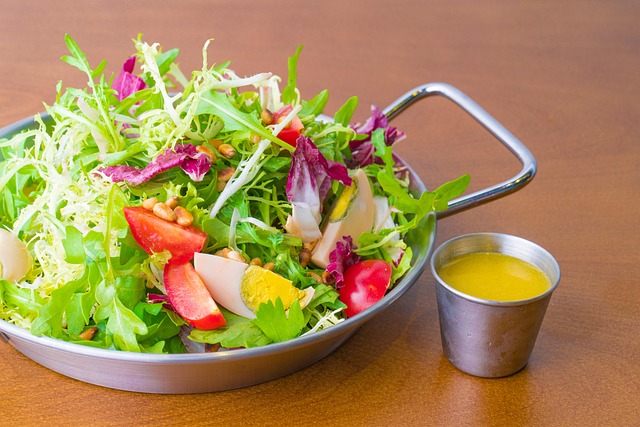
Eugene, Oregon, is a year-round culinary destination celebrated for its farm-to-table dining and loc…….
Unveiling Eugene’s Culinary Treasures: Events for Food Lovers
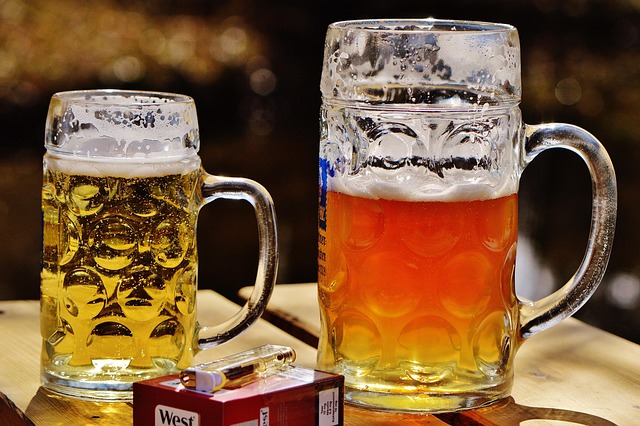
Eugene, Oregon boasts a vibrant culinary landscape with diverse food experiences. From farm-to-table…….
Savor Local Flavors: Eugene Oregon’s Seasonal Celebration
Savor Seasonal Flavors at Eugene’s Festival Celebrations
Discovering Seasonal Taste at Eugene Food Fairs
Savoring Eugene’s Seasonal Culinary Culture: A Festival Journey
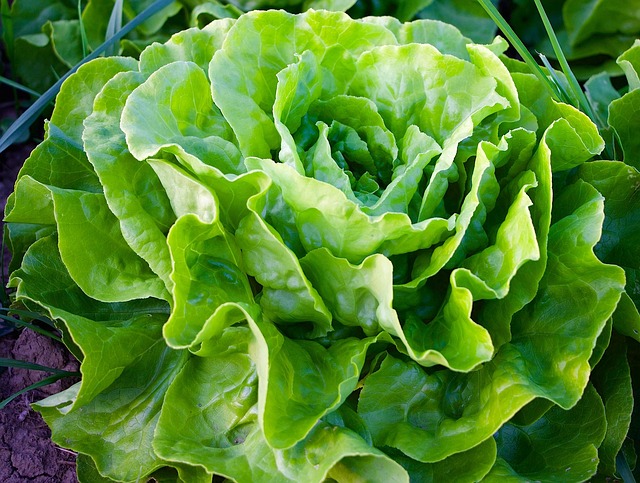
Eugene, Oregon, boasts a vibrant culinary scene centered around seasonal and local ingredients. The…….
Taste Eugene Oregon’s Fresh Flavors at Seasonal Festivals
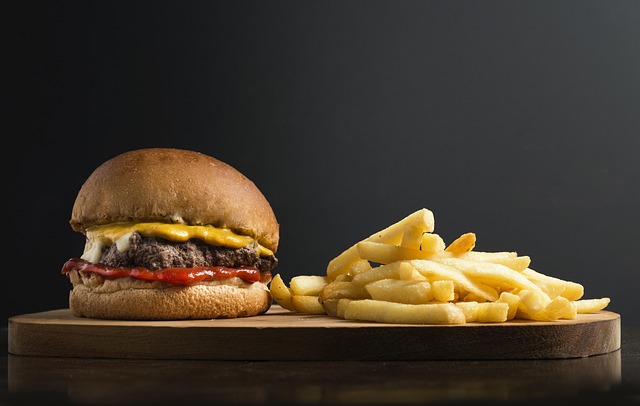
Eugene Oregon is a culinary hotspot with diverse dining options, including innovative restaurants, c…….




